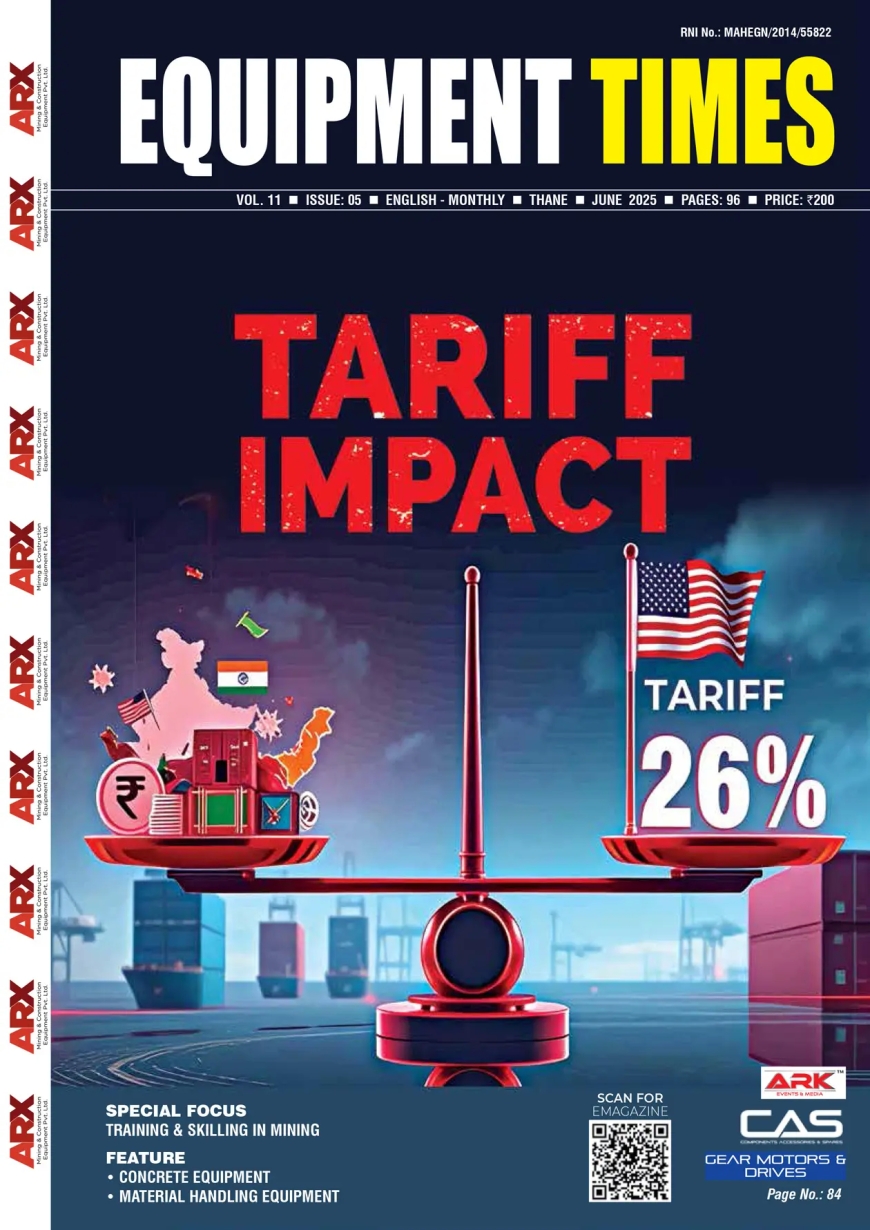Charging Ahead: The Surging Popularity of Electric Machinery
The electrification of construction equipment in India represents a crucial step towards a sustainable and eco-friendly construction industry. With government support, technological innovations, and a growing awareness of environmental responsibility, electric construction equipment is poised to redefine the future of construction practices in India.
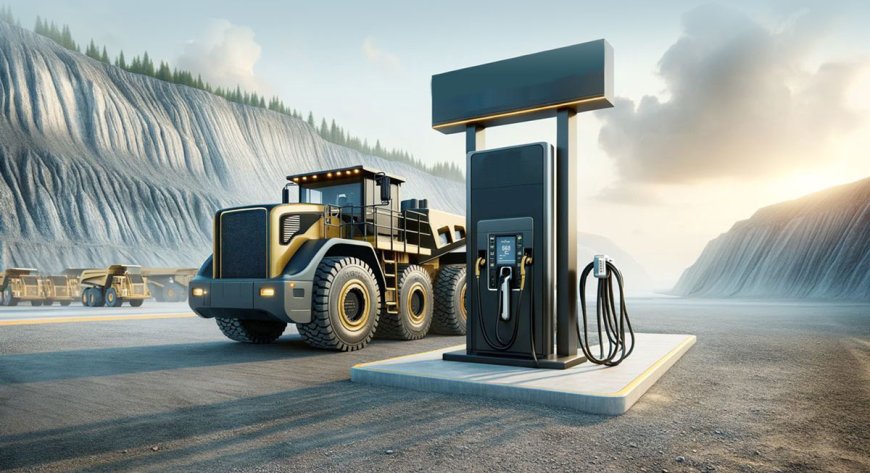
The increasing awareness of environmental issues and the need to reduce carbon emissions have led to a growing demand for cleaner and more sustainable construction practices. Electric construction equipment is seen as a eco-friendlier alternative to traditional diesel-powered machinery.
While electric construction equipment may have a higher upfront cost, the overall cost of ownership can be lower due to factors such as lower fuel costs, reduced maintenance expenses, and longer equipment lifespan.
Major construction equipment manufacturers have been expanding their electric product offerings. This includes electric excavators, bulldozers, loaders, and other machinery. New entrants and startups are also entering the market with a focus on electric construction equipment.
The availability of charging infrastructure is crucial for the widespread adoption of electric construction equipment. As the infrastructure develops, it becomes more feasible for construction companies to invest in electric machinery. Despite the growth, there are challenges such as the limited range of some electric construction equipment compared to their diesel counterparts, the need for an adequate charging infrastructure, and potential concerns about the durability of electric equipment in harsh construction environments. The construction industry, in general, has been experiencing trends toward digitalization and automation. Electric construction equipment fits into this broader trend, aligning with the industry’s move towards more technology-driven solutions.
The Rise of Electric Construction Equipment in India
In recent years, India has witnessed a paradigm shift in the construction industry with a growing emphasis on sustainability and environmental consciousness. A notable contributor to this transformation is the adoption of electric construction equipment, marking a significant departure from traditional diesel-powered machinery. This shift not only aligns with global efforts to reduce carbon emissions but also addresses the country’s need for cleaner and more efficient construction practices.
Environmental Impact
One of the primary drivers behind the surge in electric construction equipment is the urgent need to address environmental concerns. Diesel-powered machinery has long been associated with air pollution and noise, impacting both urban and rural areas. Electric construction equipment, powered by advanced battery technology, offers a cleaner alternative, significantly reducing carbon emissions and noise levels at construction sites. This shift aligns with India’s commitment to sustainable development and its ambitious targets for renewable energy adoption.
Government Initiatives
The Indian government’s initiatives and incentives play a pivotal role in promoting the adoption of electric construction equipment. Various policies encourage construction companies to invest in eco-friendly alternatives, offering tax benefits and subsidies for transitioning to electric machinery. This proactive approach creates a conducive environment for manufacturers to develop and market electric construction equipment, thereby supporting the broader goal of reducing the construction industry’s carbon footprint.
Technological Advancements
Rapid advancements in battery technology have paved the way for more efficient and powerful electric construction equipment. Lithium-ion batteries, in particular, have become the industry standard, offering longer operational hours and quicker charging times. This not only enhances the productivity of construction projects but also addresses concerns about the limited range and downtime associated with earlier iterations of electric machinery.
Cost-Effective Operation
While the initial investment in electric construction equipment may be higher than their diesel counterparts, the long-term operational costs are considerably lower. Electric machinery requires less maintenance, has fewer moving parts, and benefits from lower fuel costs. As the charging infrastructure continues to develop, the overall cost of operating electric construction equipment is expected to decrease, making it an economically viable choice for construction companies.
Industry Collaboration
The transition to electric construction equipment is not only driven by manufacturers but also involves collaboration between the private sector and government bodies. Industry leaders are partnering with research institutions and technology companies to develop innovative solutions, including smart construction equipment that integrates with digital platforms for enhanced monitoring and control.
Challenges and Future Outlook
Despite the positive momentum, challenges such as limited charging infrastructure and the higher upfront cost still pose barriers to widespread adoption. However, as the industry continues to mature, these challenges are expected to be addressed through increased investments in charging infrastructure and continued advancements in battery technology.
In conclusion, the electrification of construction equipment in India represents a crucial step towards a sustainable and eco-friendly construction industry. With government support, technological innovations, and a growing awareness of environmental responsibility, electric construction equipment is poised to redefine the future of construction practices in India. As the industry continues to embrace this transformative shift, it not only contributes to a cleaner environment but also sets the stage for a more efficient and economically viable construction sector.
Leaders speak…

Senthilkumar, Managing Director, Propel Industries, said, “In terms of fuel efficiency and emission control technologies, Propel’s vehicles are battery-operated, resulting in zero exhaust emissions. Propel’s Pure EV trucks exceeds customer expectations, utilizing regenerative braking for range extension, especially in downhill scenarios, enabling self-charging without the need for external charging.”
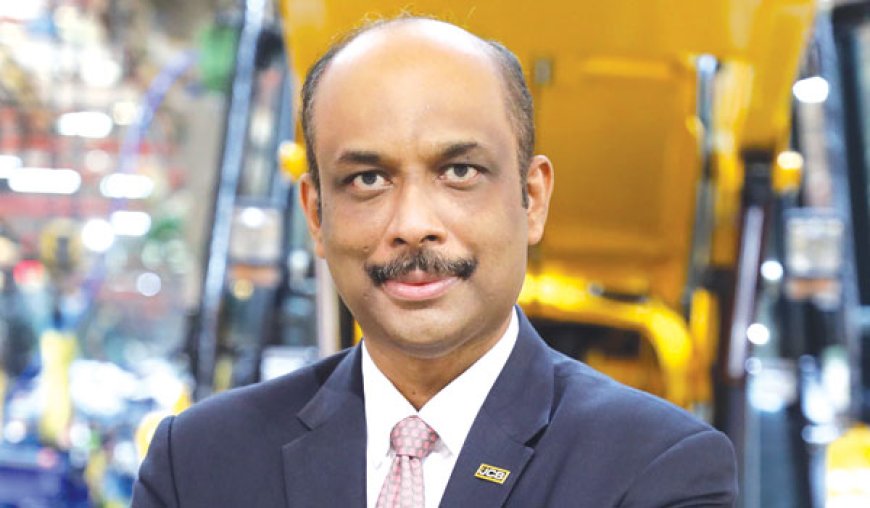
Deepak Shetty, CEO & Managing Director, JCB India, said, “In the ever-evolving landscape of construction machinery, the JCB 19C-1E stands as a beacon of innovation, heralding a new era of efficiency, sustainability, and user-friendly design. This electric-powered mini excavator is not just a piece of heavy equipment; it’s a silent powerhouse revolutionizing the way we approach confined spaces, indoor applications, and environmentally conscious construction practices. At the heart of the JCB 19C-1E is its commitment to environmental responsibility. This high-performance mini excavator runs entirely on lithium-ion batteries, making it a zero-emission machine. With a transport weight of 4.0T, it’s the ideal choice for projects in confined and restricted access areas, where traditional excavators might struggle to maneuver.”
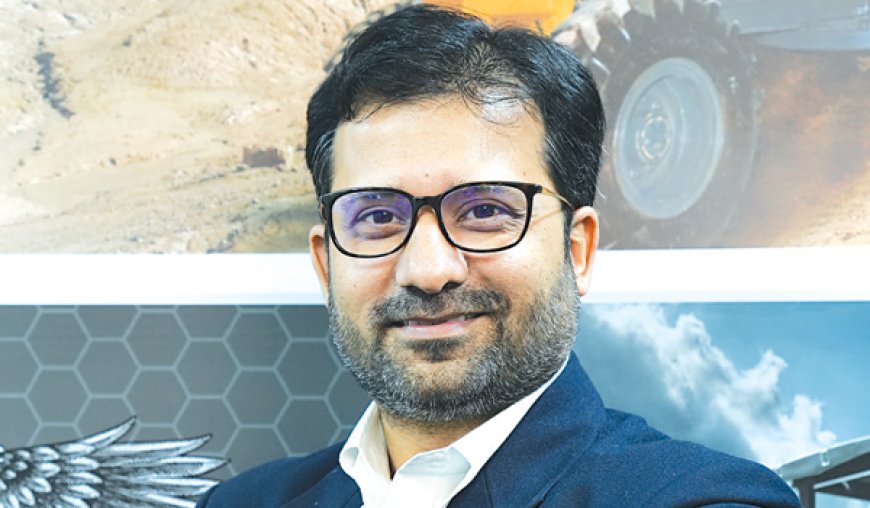
Shalabh Chaturvedi, Managing Director, India & SAARC region, CASE Construction Equipment (CNH Industrial), said, “At CASE India, we believe in the power of progress and sustainability. Our commitment to reducing carbon emissions drive us to support the government on the initiative to evolve construction equipment through electrification. Having electric machineries in our portfolio, we are not just focusing on innovation; we are embracing a cleaner, greener tomorrow. As we proudly presented our Electric Mini Excavator at EXCON, South Asia’s biggest expo, we recognize India’s fervent efforts in carbon reduction. As a responsible construction equipment brand, we are set to contribute to the government’s goal of reduction of carbon footprints in India. Our journey towards a cleaner, more sustainable construction industry is an evidence to our dedication to both progress and environmental responsibility.”
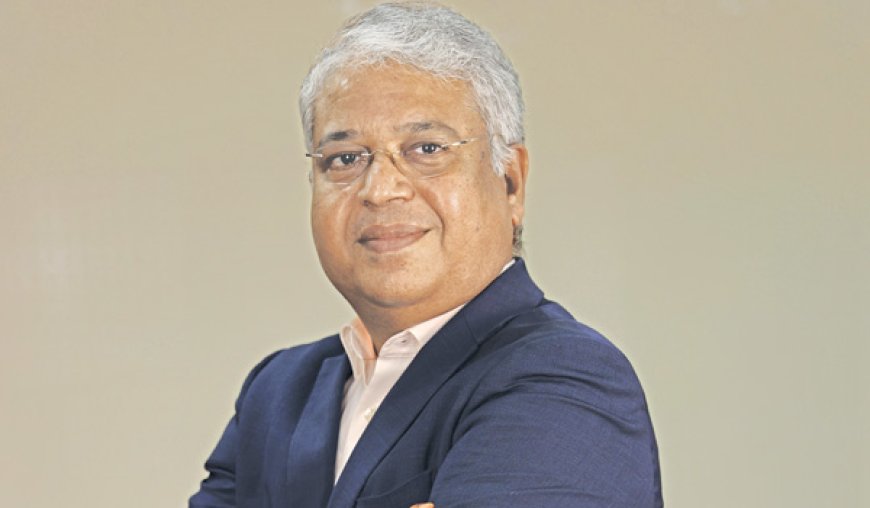
V.G. Sakthikumar, CMD, Schwing Stetter India, said, “What distinguishes our electric equipment from traditional, non-electric models is the focus on sustainability and reduced environmental impact. Our equipment follows the principles of circular economy, designed for minimal waste, maximum resource efficiency, and a commitment to renewable and recyclable materials. The market shift towards electric construction equipment is perceived as a positive and necessary step. We recognize the growing demand for sustainable machinery, and our investment in electric equipment aligns with the industry’s move towards eco-friendly solutions.”
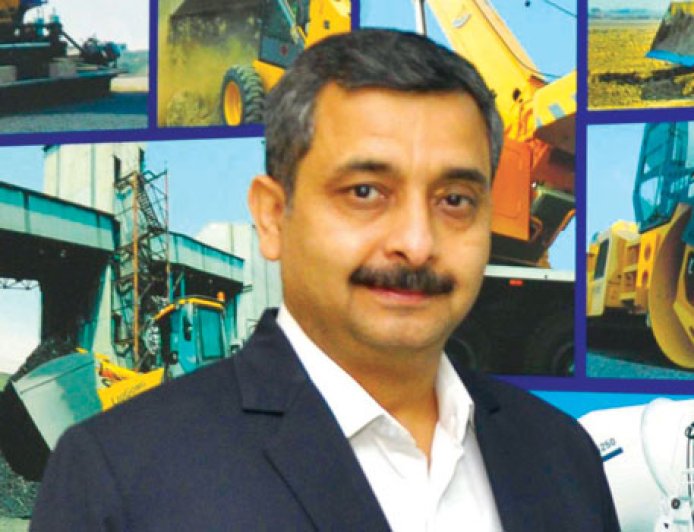
Nischal Mehrotra, Senior Vice President, Sales & Marketing, LiuGong India, said, “We perceive the market shift towards electric construction equipment for various brands like LiuGong itself is a positive and inevitable trend, driven by several factors. The construction industry is a major contributor to greenhouse gas emissions, nearly 20%, with diesel-powered equipment being a significant source. Electric construction equipment produces zero emissions at the point of use, helping to combat climate change and improve air quality.
Also, our government is implementing stricter regulations on emissions from construction sites, creating a strong incentive for companies to adopt electric alternatives. It can offer significant cost savings over the long term, due to lower fuel and maintenance costs. We have personally witnessed that consumers are increasingly interested in products and services that are environmentally friendly. By adopting electric construction equipment, we can demonstrate our commitment to sustainability and improve our public image.”
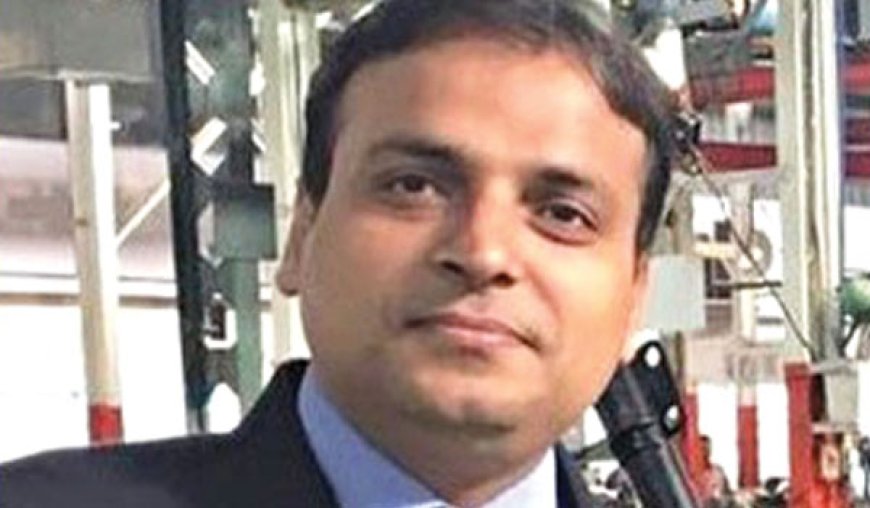
Ankit Goel, Head, Design & Development, Action Construction Equipment (ACE), said, “ACE – Action Construction Equipment. India’s largest Mobile Crane and Tower Crane Company is committed to work towards New Technologies for Cleaner and Greener Environment. ACE has been successfully announcing and leading initiatives supporting the global initiative in order to be aligned with India towards climate neutrality. ACE started his journey on Electric CE by starting manufacturing of Tower Cranes and Electric Forklifts. Over the years, multiple variants were added and are in regular production. In 2021, ACE had launched India’s 1st Made in India Electric Forklift with Lithium-ion battery. Further, the major product programs have been initiated and one of the company’s prime material handling product ‘Pick n Carry Crane’ working prototype “ACE F150-ev 4X4” has been launched during Bauma, India 2023 and further Pilot machine was displayed during Excon, India held in Dec 2023. Company has already set the plan to handover this elite product to the customers.”
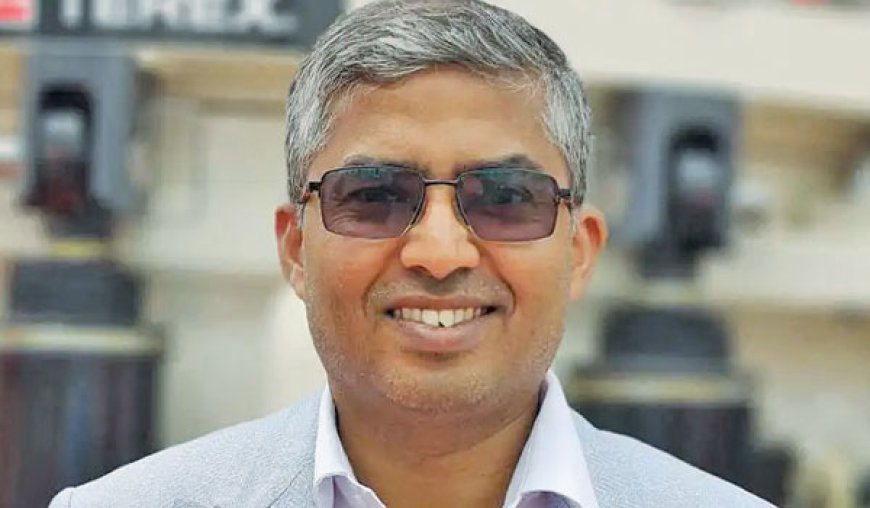
Amol Sinha, Director – Product & Training, Terex India, said, “Our Electric Machines offer significant cost savings for customers. Compared to diesel-powered counterparts, our electric machines reduce running costs by 40% due to efficient electric drives. The absence of regular engine maintenance further enhances the cost-effectiveness and durability of our electric construction equipment. Our Electric Machines contribute to environmental sustainability by eliminating diesel consumption and emissions, which aligns with green initiatives, offering a cleaner and more eco-friendly solution for construction & recycling sectors.”

Anand Hariharan, Product Management Head, Putzmeister India, said, “Putzmeister has several varieties and levels of electric power-driven equipment, starting from the wired electric, to mild hybrids which we call Iontron Light, the Iontron which are full electric machines, to completely electrically powered chassis and equipment. We are carefully assessing the market, the ecosystems and applications to expand our electric portfolio in India.
Hits: 0








